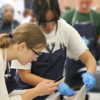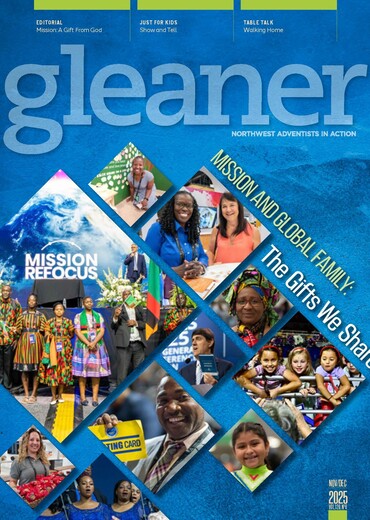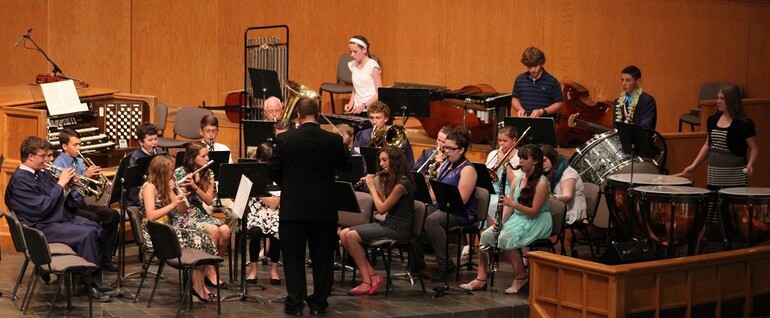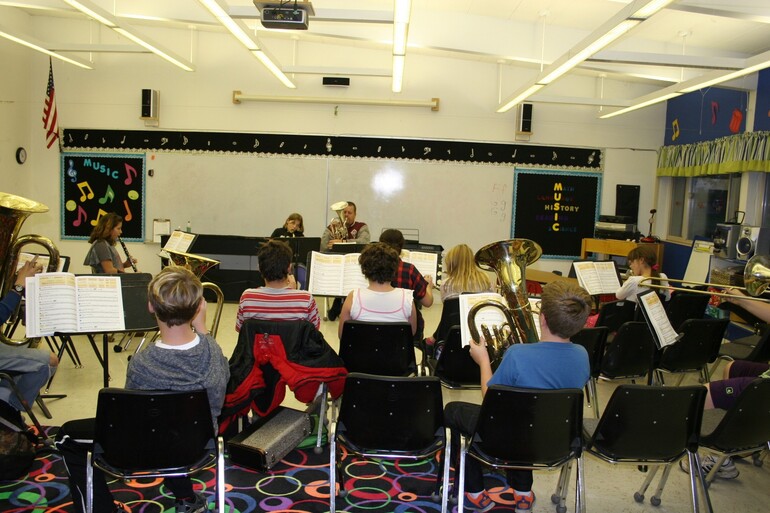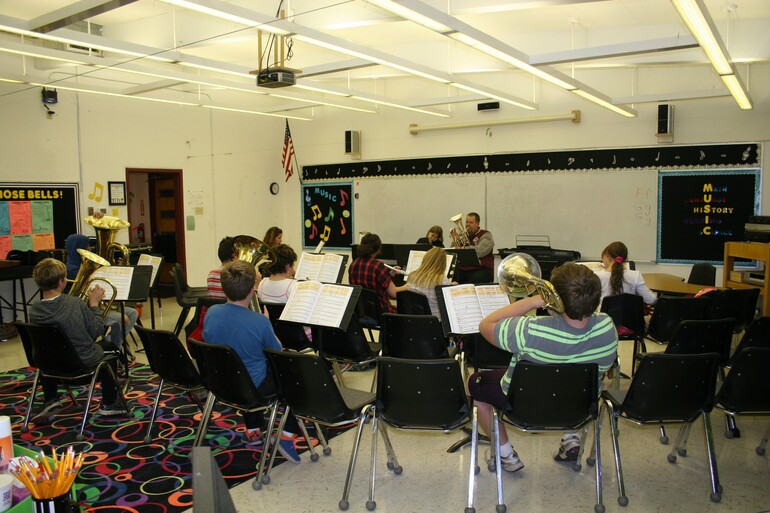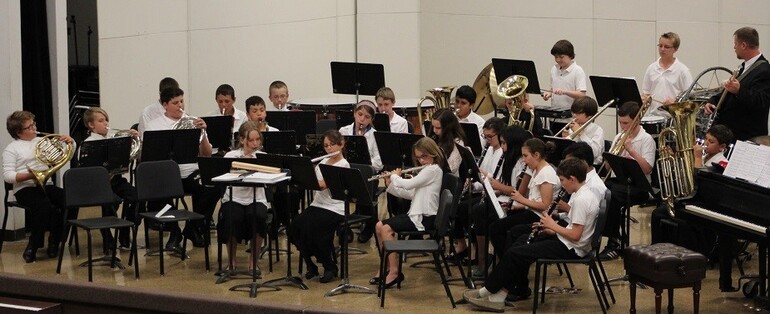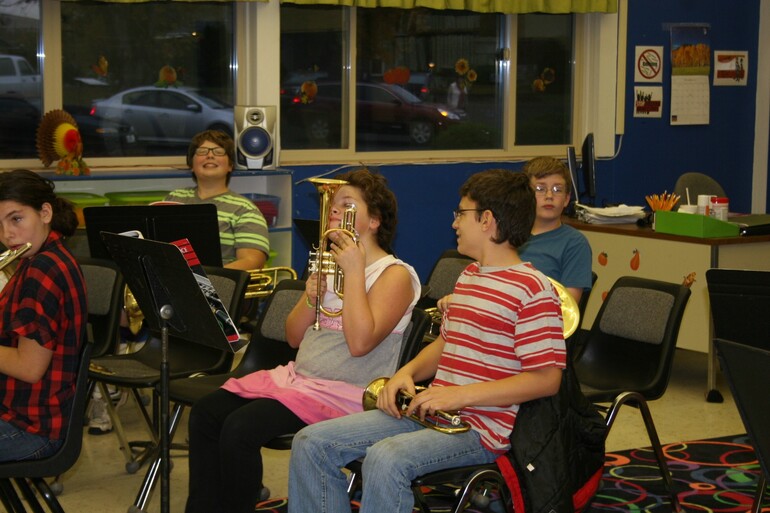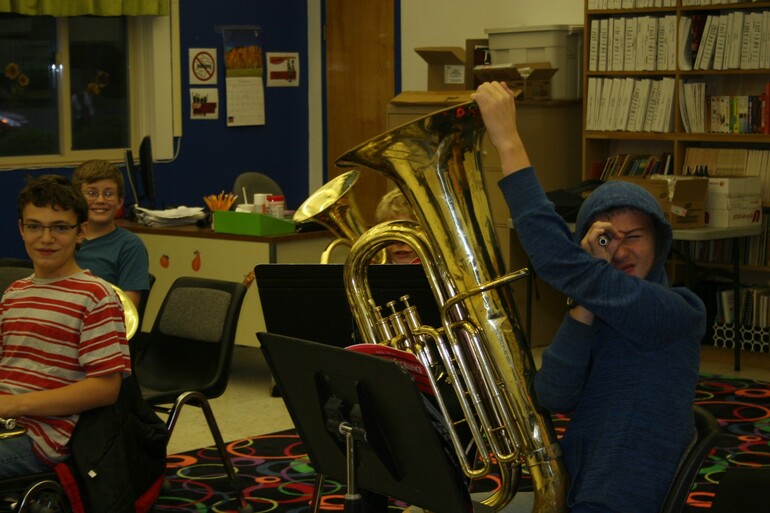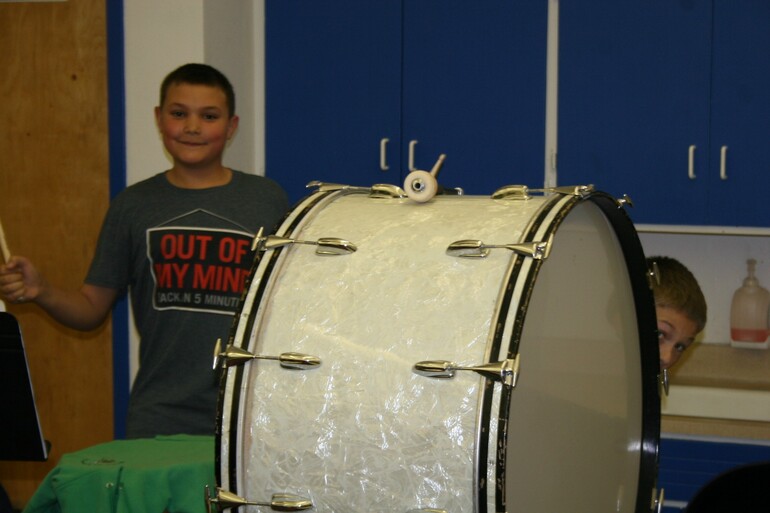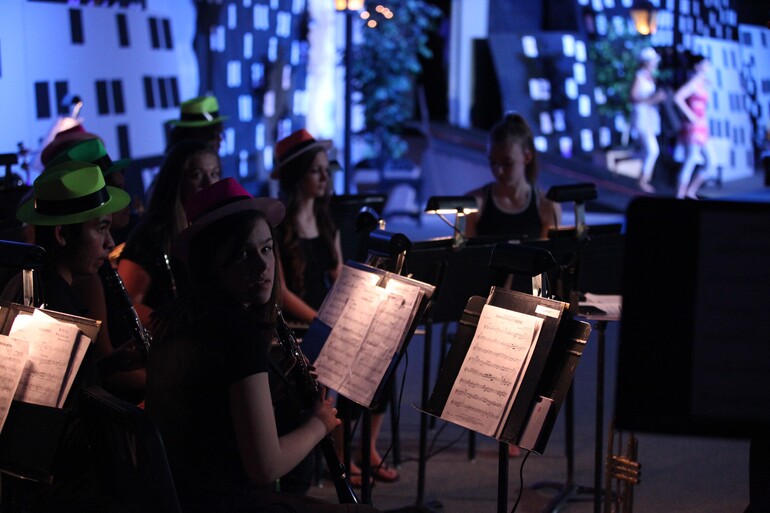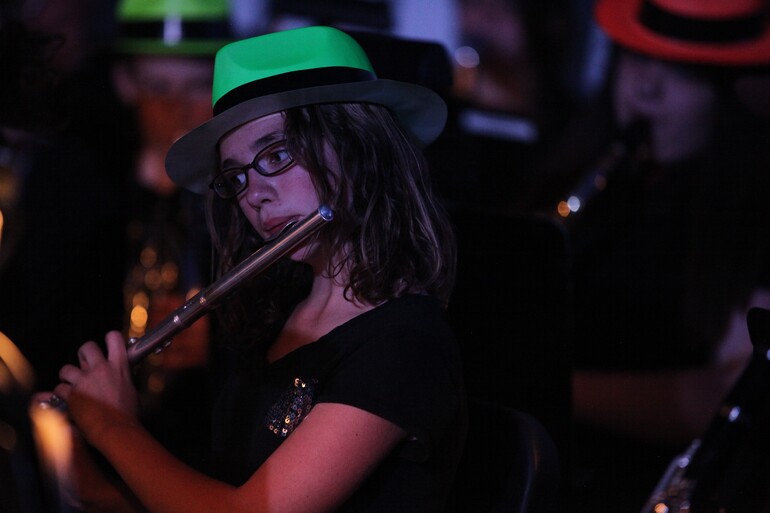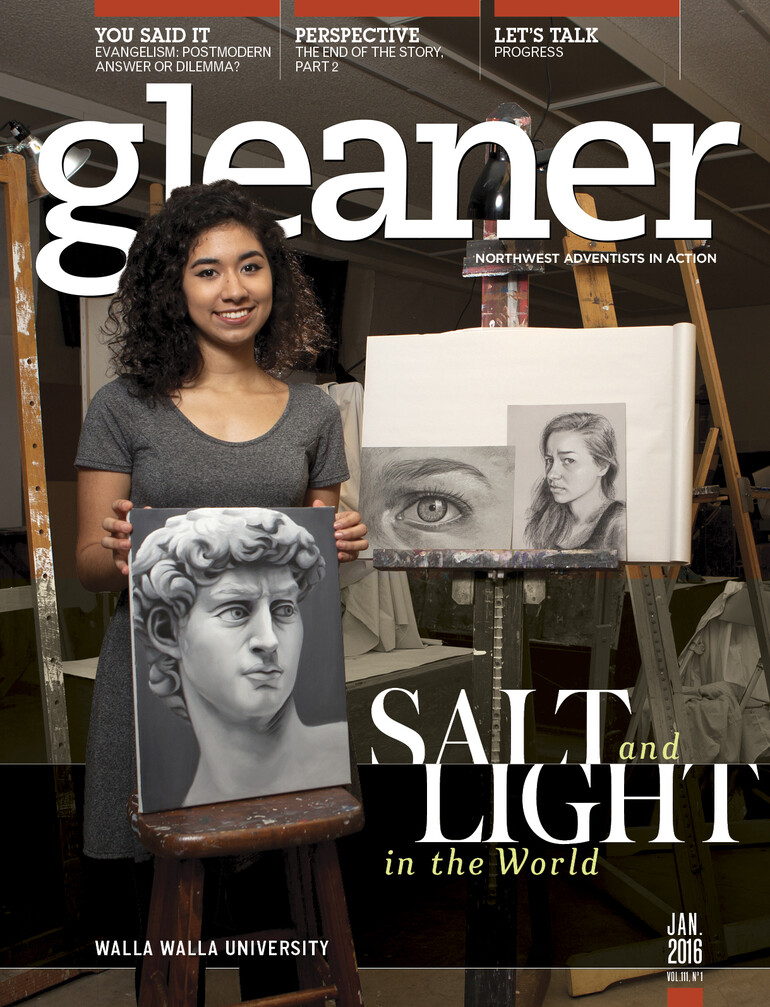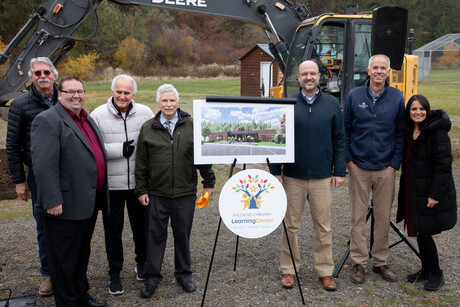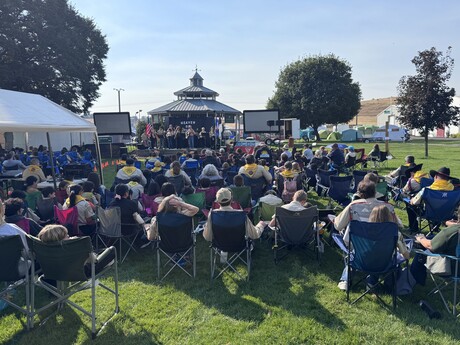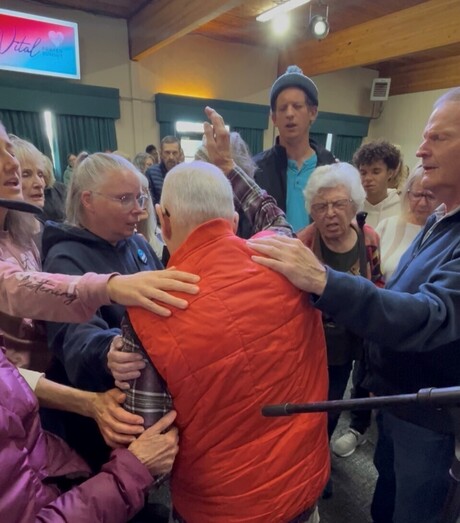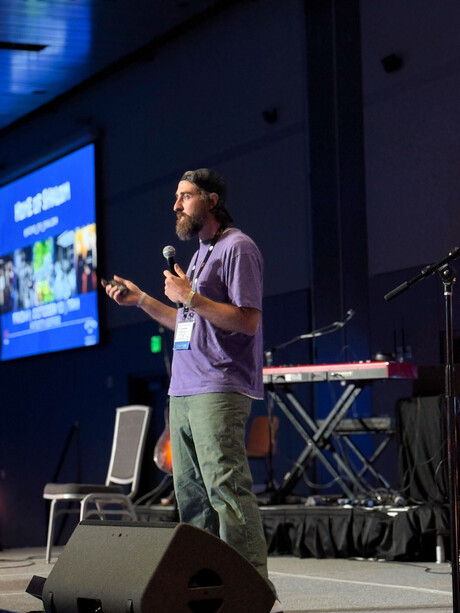Eric Anderson, Walla Walla Valley Adventist Schools (WWVAS) band director and one of the first faculty members to teach students in all three schools, isn’t shy about sharing his students’ success stories. “One student stands out for her tenacity and perseverance in learning to play the flute. It took her over a month just to make a consistent sound,” he says, “but after such a hard start, she now has her master’s degree in flute from California State University Fresno and is teaching at California Lutheran University, as well as performing in various wind ensembles, orchestras and symphonies. I’ve had quite a few musicians continue their love of music by making it into a career.”
With resources always at a premium, Milton-Stateline Adventist School (Milton-Freewater, Ore.), Rogers Adventist School and Walla Walla Valley Academy (both in College Place, Wash.) started looking for unique ways they could work to provide a robust music program that would benefit each school. By working together, every student gets exceptional access, schools share resources, and, most of all, students have the opportunity to get to know students from other schools.
Anderson came to Walla Walla Valley Academy in 2014 wanting to build a strong and vibrant band program. He came to realize that the stronger students become musically in their partner schools, the more everyone benefited from the opportunities. Every student, every school, became stronger together. “Too often,” says Anderson, “music is overlooked at the beginning of the learning process. We love to see the end results but don’t always think about how a person gets there.” He is proud of the fact that the WWVAS band program has students who have played for a long time and students who have just started this year, adding “It is never too late to learn an instrument.”
Music is incredibly important in student success. According to Anderson, music teaches a student to identify emotions they then portray to their audience through the music. Interpreting these emotions leads to reflective thought and to a more loving, caring and empathetic person. These are all attributes that make better Christians, and the element of music also leads them to being connected and engaged in churches and communities. Musicians can use their gifts to praise the One that gave them talent.
In addition to connecting spiritually, students have a great time developing skills on their instruments and playing together in ensembles. Studies have shown that learning to play an instrument helps your brain develop in ways nothing else can provide. Music performance improves students’ skills in math and language arts.
Music performance also develops important skills such as neurological multitasking, self-discipline, resilience, self-confidence, flexibility, creative problem-solving, cooperative learning, teamwork, generosity, manners and respect. Students learn the rewards of working hard, learn how to read music, and gain a glimpse of music history and theory. And last, but not least, musical groups are an incredible place to develop positive and long-lasting friendships.
“Learning to play an instrument at the age of 8 enabled me to participate in band music to this day,” says Leslie Briggs, Milton-Stateline Adventist School principal. “I have been able to supplement on several instruments in school bands where I have taught. It’s a great way to interact and see the kids outside the classroom. It is a very special connection.”
“Eric has done a wonderful job engaging our students in learning an instrument,” says Clare Thompson, Rogers Adventist School principal. “The band offers each student the opportunity to connect with their peers and to experience the joy of teamwork, no matter the skill level.”
Walking into a band rehearsal you immediately feel the passion Anderson has for teaching his students. “I love it for many reasons,” he says, “but the key moment is when a student accomplishes something that they thought was impossible or extremely hard. Those are the moments you want for every student to experience.”
“What makes the biggest difference to these students,” says Brian Harris, Walla Walla Valley Academy principal, “is when you come and support them at concerts or any venue where they perform. When the community takes time to talk to them about experiences that you have had as a musician or audience member, it encourages them to continue their musical journey. Connecting with community members they don’t know — people who don’t have to be there — make a huge difference for these kids.”
